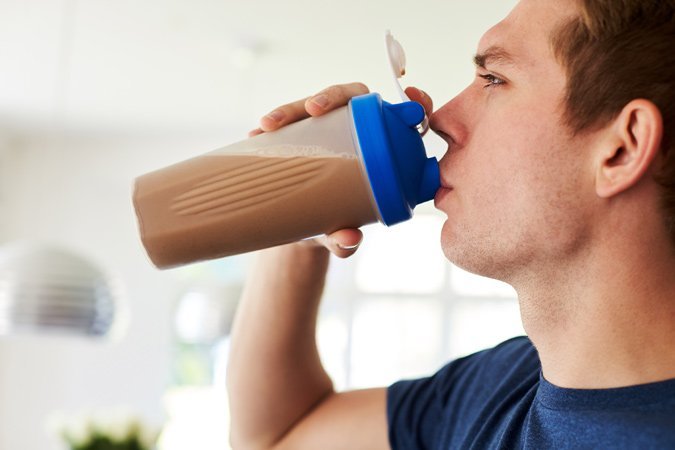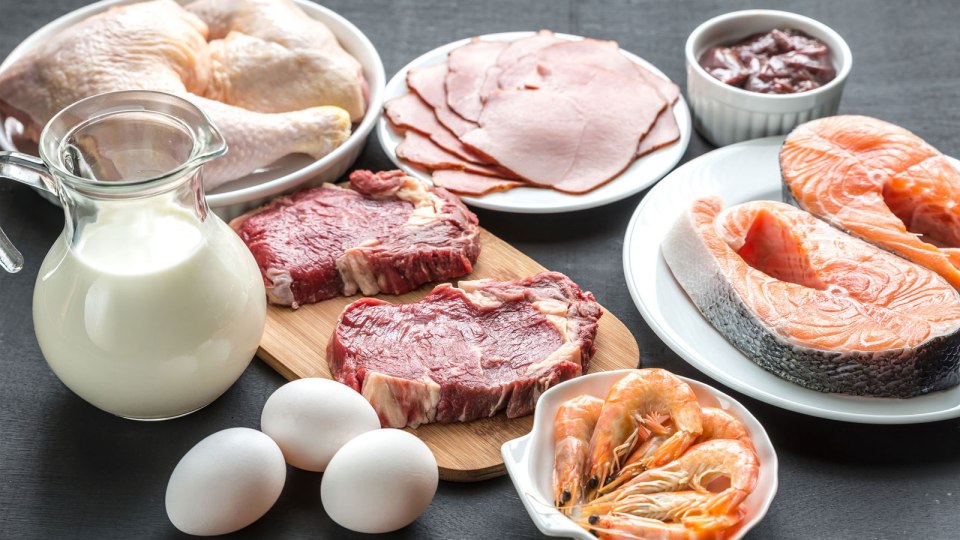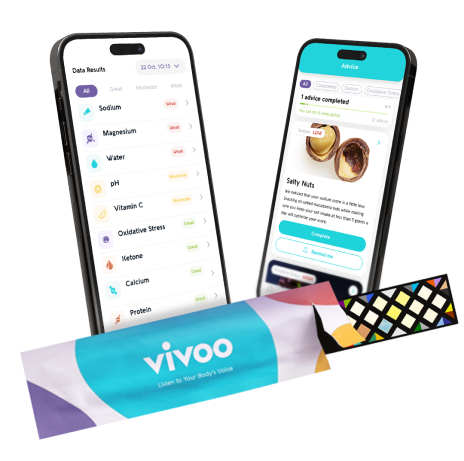One of the most commonly used nutritional supplements today is protein supplements. It has become the staple of not only professional athletes, but also many other people who are interested in sports. With the increase of those interested in fitness, curiosity and consumption of protein powders have gone up. However, question marks in people's heads about protein supplementation are also increasing. What are protein powders? Is it really needed? Can protein intake be increased without protein powder? You may have questions like these in your mind. Let's look at the protein powders together.
What is Protein?
Proteins are macronutrients that we need to take in sufficient amounts in our daily diet. Proteins are essential for the body's growth and development, cell renewal, the immune system, certain hormones, and enzymes. They are also involved in the construction and repair of tissues. Therefore, it is important for wound healing, hair, skin health, and the development of organs.

How Much Protein Should We Take in Our Daily Nutrition?
Proteins must meet 10-20% of daily energy intake. However, the absolute protein requirement varies according to the level of physical activity of the person. The daily protein requirement of sedentary individuals is 0.8-1 g per kg per day. When an individual weighs an average of 70 kg, their protein requirement is 56-70 g. This amount can be easily met with food.
Athletes need more protein than sedentary individuals. Their protein requirement increases to 1.2-2 g per kilogram per day according to the activity level. Ingesting 20-40g of protein after training helps to increase muscle mass by reducing muscle damage and promoting protein synthesis. The International Society of Sports Nutrition remarks that focusing on protein quality and amino-acid content is the most crucial point about protein requirement. Besides, the protein requirement should be met mostly with whole foods. However, if your physical activity level is high, safe, and convenient supplements may be used where needed.
What are Protein Supplements?
Protein supplements are ergogenic aids that support muscle building. Protein supplementation promotes greater gains in lean mass and muscle strength for both trained and untrained individuals as the duration and frequency of resistance training increases. Athletes and recreationally active adults may also benefit from protein supplements for strength and to improve physical performance. While limited, quality experimental data shows that protein supplements improve aerobic and anaerobic power in athletes during their routine training programs.

Protein supplements can be obtained from different food sources. Generally, animal proteins (meat, milk, eggs) are higher quality proteins than plant-based proteins. Let's look at the protein sources in more detail:
Milk Protein
Cow’s milk consists of water, protein, fat and some sugar and minerals. There are two types of protein in milk: casein and whey.
Whey protein constitutes 20% of milk protein. It contains plenty of BCAA that provides energy for muscles. Whey protein consumption is thought to be more appropriate post-exercise because its absorption is faster. Whey protein can be found in different forms. When the liquid portion of the milk is removed, the resulting dry product forms a concentrated whey protein. It contains 30-90% protein with various amounts of cholesterol and lactose (naturally occurring carbohydrates in milk). Isolated whey protein powders are free of fat and lactose. However, isolated whey contains higher amounts (over 90%) of protein with rapid absorption. On the other hand, hydrolysates are pre-digested whey proteins that are absorbed by the body much faster.
Casein protein constitutes 80% of milk protein. Its absorption is slower than whey protein.
Egg and Meat Protein
There are other animal protein sources, like egg protein and meat protein. These animal sources of protein are usually high in essential amino acids.
Plant Protein Sources
Protein powders are obtained from plants such as soybeans, peas, rice, potatoes, or hemp. As vegetarians rely on plant-based proteins, soy is the most common one because it is a relatively high-quality protein and can be found in many food products, including sports nutrition products.

Well! Who Should Get Protein Supplements?
Sedentary individuals and recreational athletes can meet the protein they need with food during the day. Therefore, they do not need protein supplements. However, the need for protein is higher in athletes who perform at a high-intensity level. In this case, it may be difficult for the athlete to meet the protein requirement by food alone. When it is needed, proper protein supplements can be used in conjunction with a healthy diet.
Are Protein Supplements Harmful?
With protein supplementation, people may get more protein than they need.
There are many negative effects of excessive protein intake:
Increased risk of dehydration due to increased urea production, increased risk of insulin resistance due to increased insulin secretion, and increased risk of kidney stones.
Protein supplements may also be contaminated with unwanted substances. And there's no way to know if a protein powder contains those substances because protein powders are a dietary supplement and the FDA does not control the content of protein powders. In one study, researchers stated that many protein supplements contain heavy metals (lead, arsenic, cadmium, and mercury), bisphenol-A (BPA used to make plastics), insecticide, or other contaminants(*). Therefore, it is important to do critical research about a supplement product before using it.

How Can I Increase Protein Content in My Daily Nutrition Without Protein Supplements?
We talked about taking 20-40 g of protein after training can help increase muscle mass by reducing muscle damage and supporting protein synthesis. Now we want to offer you several alternatives where you can consume 20g of protein without taking protein supplements.
Grilled Meat/Chicken/Fish
Protein is the richest in animal-derived foods. Eating 3-4 oz of chicken, red meat, or fish after exercise will provide enough protein. However, the fat and cholesterol content of red meat is higher, so it should be consumed more rarely. Cooking these foods on the grill, in a pan, or in the oven will keep the energy and fat values in balance.

Salad with Lentils and Buckwheat
Legumes such as lentils, chickpeas, dried beans, mung beans, red beans, and Mexican beans are protein-rich vegetable foods. 3 oz of lentils contains 9 g of protein. However, legumes lack certain amino acid groups. Therefore, consuming legumes with cereals improves protein quality. When you make yourself a lot of greens, use 3 oz of boiled lentils, 3 tbsp of boiled buckwheat, and add 1 cup of yogurt to make sure you take enough protein. If you do not want to consume food of animal origin, you can increase the number of legumes.
Cheese Omelette
Other protein-rich foods of animal origin are eggs and cheese. If you do exercise in the morning or do not want to consume meat/chicken/fish after exercise, you can make yourself a nice omelet. An omelet made from two eggs and 2 slices (2 oz) of cheese will provide you with enough protein.
Shake
Milk is also a protein-rich food. You can increase the protein quality by adding peanut butter. Peanuts contain the most protein among the nuts. There are 25 g of protein per ½ cup.

If you do not have time to eat after exercising, you can prepare yourself a shake. 1 cup of milk + 1 tbsp peanut butter + 5 tbsp oatmeal shake will give you enough protein.
Sandwich with Tuna
Another meal you can easily eat outside can be a tuna sandwich. Tuna contains 22 g of protein per ½ cup. You can prepare sandwiches with 2 slices of whole-grain bread and 3 oz of tuna.









